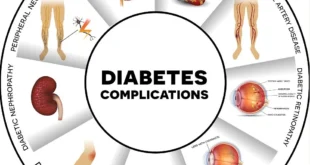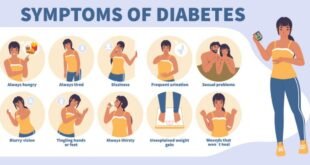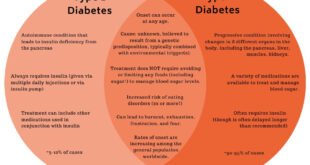High blood sugar, or hyperglycemia, can cause serious health complications both in the short and long run. Below are some of the key damages that arise from high blood sugar levels:
These Complications Affect you Immediately
Extreme Weakness and Thirst: High blood sugar causes extreme weakness and thirst.
Frequent Urination: High blood sugar results in frequent urination which leads to one being dehydrated extensively.
Blurry Vision: High blood sugar can also cause one not to be able to see clearly or experience other eye-related problems.
Confusion: An increase in blood sugar can lead to confusion and problems concentrating.
Diabetic-Ketoacidosis (DKA): a serious condition in which the body starts breaking down fat at a high rate, producing ketones. Symptoms include nausea, vomiting, abdominal pain, and a peculiar sweet smell on the breath.
Hyperosmolar Hyperglycemic State (HHS): Extremely high blood sugar levels lead to confusing and serious dehydration, which can culminate in a coma.
Long-Term Complications
Heart Disease: High blood sugar tends to increase risks of heart disease, heart attack, and stroke.
Nerve Damage (Neuropathy): High blood sugar for long durations can damage nerves causing pain, tingling, or total loss of sensation in the extremities.
Kidney Damage: High blood sugar also harms the kidneys, leading to kidney failure.
Eye Damage: High blood sugar harms blood vessels in the eyes, which can result in blindness or vision loss.
Foot Damage: Nerve damage and poor blood circulation can lead to serious foot problems, including infections, ulcers, and even amputations.
Skin Conditions: While high blood sugar can also cause a variety of skin problems, one might suffer from bacterial and fungal infections. Most of these conditions can be treated successfully.
Hearing Impairment: Diabetes increases the risks of hearing problems.
Managing blood sugar levels through a healthy diet, exercise, and medication has great significance in the prevention of these complications. It is essential that if you have any concerns regarding the sugar levels, you bring them to the attention of a medical practitioner.
 Kolnest.com – Know the Signs. Change the Future. Entertainments, Gadgets, Business, News, Articles, Love, Travel, Heallth
Kolnest.com – Know the Signs. Change the Future. Entertainments, Gadgets, Business, News, Articles, Love, Travel, Heallth






